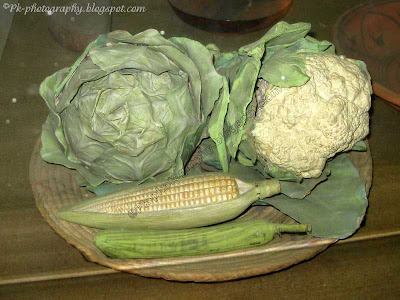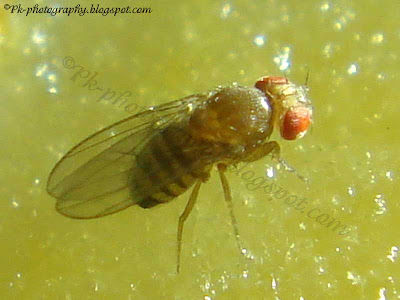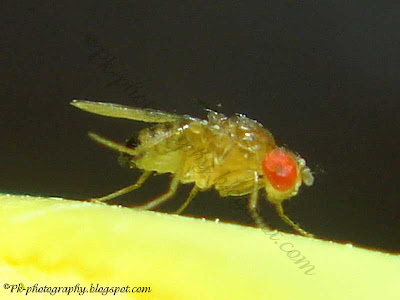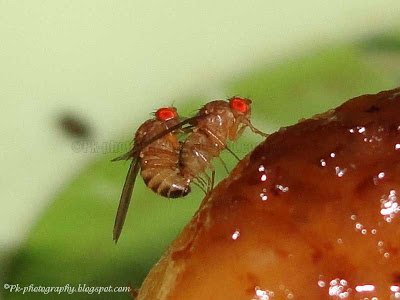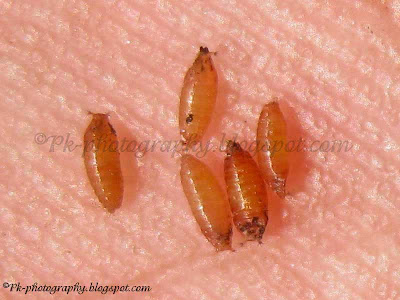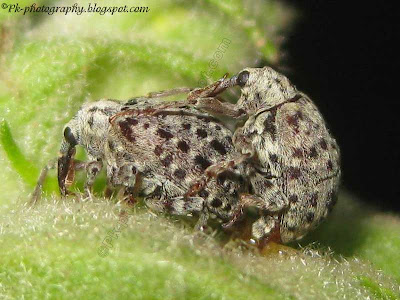Drosophila melanogaster (Common Fruit Fly or Vinegar Fly) is a species of Diptera, in the family Drosophilidae. It has yellow-brown body, with multifaceted brick red eyes, a black striped abdomen and a pair of translucent wings. It has a body size 2.5-3mm long.
Some features like rapid life cycle, low chromosome numbers (4 chromosomes), small genome size and giant salivary gland chromosome made Drosophila Melanogaster a major model organism in genetic studies.
Drosophila melanogaster (Fruit Fly) Life Cycle
The embryo(egg), which is about half a millimeter long, completes its development within 24 hours and hatches into worm-like first instar larva that is specialized for feeding and grows dramatically. The larva molts 24 and 48 hours after hatching to produce second and third instar larvae. A mature larva is about 7-8 mm long.
About three days after the second molt, the third instar larva complete its growth, crawl out of food and pupate. The pupa on the average is 2mm long. Inside the pupa case the larva undergo a four-day-long metamorphosis, after which the fly emerges from pupa. The newly emerged flies are ready to mate in 8-12 hours.
Drosophila melanogaster Life Cycle Pictures
Drosophila melanogaster (Fruit Fly) Male
Drosophila melanogaster (Fruit Fly) Female
Drosophila melanogaster (Fruit Fly) Mating
Drosophila melanogaster (Fruit Fly) Eggs
Drosophila melanogaster (Fruit Fly) Larvae
Drosophila melanogaster (Fruit Fly) Pupae
Newly Emerged Drosophila melanogaster
This post is dedicated to Mr. Naveed Khan (my nephew) a student of M.Sc Genetics, Department of Genetics, Hazara University, Manshera, Pakistan, who introduce me to
Drosophila Melanogaster and its raising techniques.


















